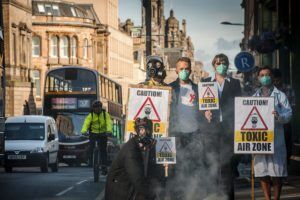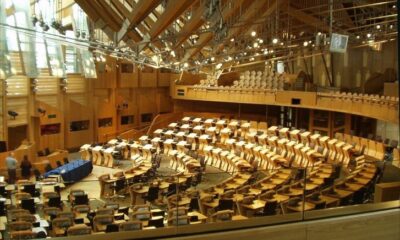

Environment
Scottish clean air strategy launched
Scotland’s Minister for the Environment and Climate Change Aileen McLeod today announced the publication of ‘Cleaner Air for Scotland – The Road to a Healthier Future’, a new national strategy aiming to achieve cleaner air quality for Scotland.
Speaking at this morning’s Scottish Transport Emissions Partnership (STEP) annual conference, Dr McLeod said she had a vision for Scotland’s air quality to be the best in Europe.
She said: “In recent decades polluting outputs have been reduced – but despite these efforts, pockets of poorer air quality still remain in many of our towns and cities.
“Cleaner Air for Scotland is our first distinct air quality strategy. It sets out actions across government portfolios that will further reduce air pollution, with a particular emphasis on protecting human health and reducing health inequalities.
“Through Cleaner Air for Scotland we will adopt the World Health Organisation guideline values for particulate matter in Scottish legislation – making us the first country in Europe to do so. I want us to demonstrate our level of ambition, but at the same time learn from good practice elsewhere.
“We must also highlight the opportunities to generate efficiencies and cost savings by linking air quality to other areas, such as climate change adaption and mitigation, transport and planning. Cleaner Air for Scotland aims to provide a framework within which this can be achieved, and is particularly important in the build-up to the forthcoming climate change negotiations in Paris next month.”
The Minister added that there are challenges to overcome as a result of emerging evidence around the under-performance of EU diesel vehicle emission standards, as well as breaches of emissions testing regulations by certain manufacturers.
She said: “We will develop a national air quality awareness campaign to inform key audiences and encourage behavioural change. We cannot achieve the aims of Cleaner Air for Scotland alone – public participation and engagement is essential if we are to deliver change.”


























